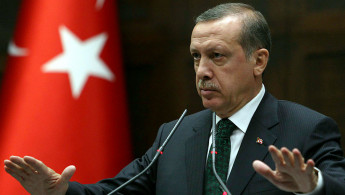Turkey extends state of emergency by another three months
Turkey's parliament approved a government-backed motion to extend the country's state of emergency by another three months, imposed in the wake of the July 15 failed coup against President Recep Tayyip Erdogan.
The controversial state of emergency has seen tens of thousands lose their jobs or be arrested on suspicion of links to the putsch.
It had already been prolonged once before and was due to expire on 19 January.
Ankara argues the state of emergency is needed to eradicate the influence in Turkish institutions of the US-based preacher Fethullah Gulen, who it blames for the failed coup. Gulen denies the charges and critics believe thousands of innocent people have been caught in the drag net.
However, the state of emergency - which is now set to last at least nine months - has troubled the human rights groups, the EU and UN fearing a broad crackdown against Erdogan critics and not just suspected coup plotters.
According to the latest figures published by the state-run Anadolu news agency, over 41,000 people have been arrested over suspected links to Gulen in the investigation.
Meanwhile, over 103,000 people have been investigated as part of the probe, it added.
Turkey has also witnessed numerous terror attacks this year from Kurdish and Islamic State group militants.
The state of emergency gives the government special powers to fire state employees and close down associations, including media groups.
It also extends the time that suspects can be held in jail without being charged.
Erdogan had in November already hinted that the state of emergency would be extended, lashing out at the European Parliament which had backed freezing membership talks with Turkey over the emergency powers.
"What's it to you?" he said in comments directed at the European Parliament. "Is the European Parliament in charge of this country or is the government in charge of this country?"
"Know your place!" he added, in an angry tirade.
He noted that France had also put in place a state of emergency after it was hit by a string of Islamist attacks in 2015.





 Follow the Middle East's top stories in English at The New Arab on Google News
Follow the Middle East's top stories in English at The New Arab on Google News
![22 Arab countries at COP29 have rejected the targeting of fossil fuels [Getty]](/sites/default/files/styles/image_330x185/public/2024-11/GettyImages-2184289638.jpg?h=199d8c1f&itok=ptHl5bec)
![Dozens of people turned out for the funerals [Getty]](/sites/default/files/styles/image_330x185/public/2024-11/GettyImages-2185229760.jpg?h=e7c891e8&itok=1bctDcE6)
![The UAE is widely suspected of arming the RSF militia [Getty]](/sites/default/files/styles/image_330x185/public/2024-11/GettyImages-472529908.jpg?h=69f2b9d0&itok=Yauw3YTG)